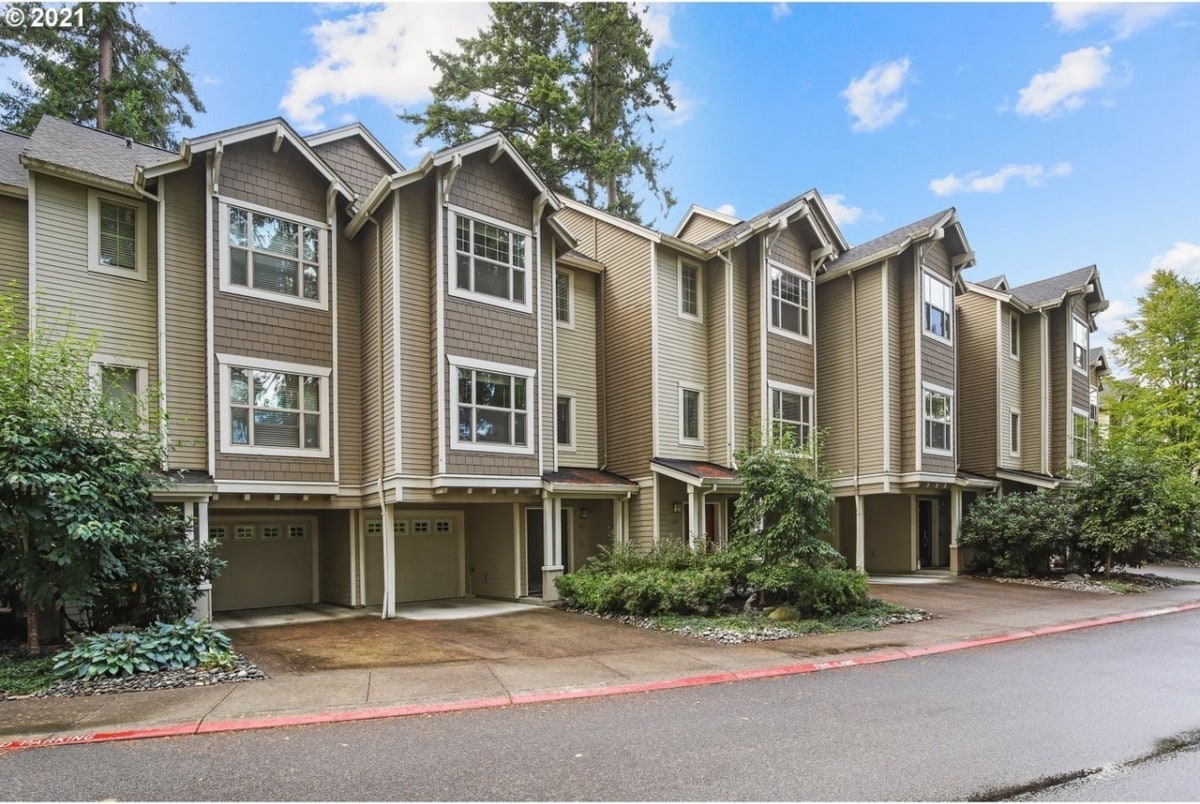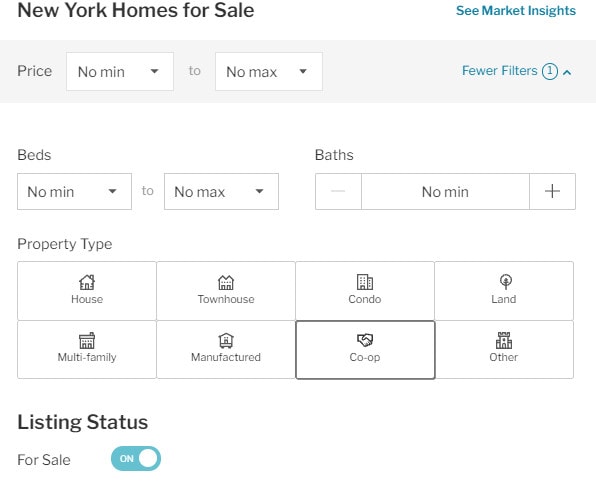Investing in a housing cooperative can be a rewarding alternative to the traditional homebuying process. But buying a co-op comes with particular considerations and consequences. This article will review the pros and cons of investing in a co-op so you can make an informed decision. Is a co-op right for you? Let’s find out.

What is a co-op?
Co-op is short for housing cooperative. It’s an alternative to home or condo ownership. It’s run like a corporation and owned and controlled by residents. The co-op owns the building, and residents own shares of the co-op.
How do housing cooperatives work?
Housing cooperatives engage in the cooperative ownership of one or more residential buildings. Co-ops also own the land under the building(s). Residents purchase shares of the co-op instead of deeds to a specific unit, and residents run and operate the co-op in a democratic process that involves the election of a board of directors.
Buying shares vs. buying real property
When you buy real property, you typically get a mortgage loan. The property acts as collateral for the loan, which reduces risk to the lender. If the payee defaults on the loan, the lender can repossess the property through the foreclosure process.
When the buyer purchases shares in a co-op, the lender does not have the property as collateral. Instead, the lender assesses the viability of the co-op. If the co-op meets the lender’s standards, a share loan will be issued.
Getting a share loan can be just as easy as a mortgage if you live in an area where co-ops are common. However, in areas where co-ops are uncommon, you may find lenders scarce. This can make the resale of your shares difficult.
The co-op board and board rules
Co-ops are organized much like non-profit corporations. There’s typically a board of directors that deal with the day-to-day operations of the organization. Board officers are residents elected or appointed by the group. How a co-op’s board is created depends on the rules and bylaws of the organization.
Those rules and bylaws also determine what you can do with your unit. Many co-ops restrict owners from subletting their homes or listing them on sites like Airbnb. There may also be pet restrictions, quiet hours, and procedures residents are required to follow.
Within the unit, residents are often required to submit renovation plans to the board for approval. Sometimes even minor renovations are subject to approval, especially in historic buildings.
Cooperative living
Living in a co-op means taking part in a democratically controlled housing community. That means you may have voting rights and duties. But you may also be required to participate in the maintenance and care of the property.
The responsibilities of residents will be determined by the co-op. Typically, smaller co-ops require residents to be more hands-on.
Co-op expenses
In addition to your loan payments, you’ll most likely pay a monthly maintenance fee for the management of the property. These maintenance fees cover day-to-day needs like lawn care, pest control, and shared utilities. If residents are performing maintenance, these fees are usually inexpensive. But in luxury buildings, these fees can be very high.
Monthly fees can also include resident shares of loan payments owed by the co-op. Occasionally, co-ops will have increased fees due to property investments, such as a lobby renovation. However, most of the time, residents have the chance to vote on these investments.
Types of housing cooperatives
There are three types of cooperative housing structures:
1) The market-rate co-op: With a market rate, co-op residents buy and sell their shares based on what the market dictates. This type of co-op is common, especially in large metros like New York City. Residents living in a market-rate co-op have the opportunity to make a profit when they sell their share(s).
2) The limited-equity co-op: The limited-equity co-op restricts the price point at which a resident can sell their shares. This is commonly used for affordable housing cooperatives. Buying into a limited-equity co-op lowers the financial bar for homeownership.
3) The Group equity or leasing co-op: In this kind of co-op, residents don’t benefit from equity ownership. Instead, they get occupancy rights and pay rental costs below market value.

What are the typical co-op home styles?
Co-ops come in many types of housing styles, including:
- Apartment complexes
- Townhouses
- Single-family homes
- Mobile home parks
- Senior housing or retirement communities
- Student housing
- Special needs housing
The most common style is apartment complexes— mid-rise, high-rise, or garden apartments. In states like Florida, co-op retirement communities are also common.
Co-op housing pros and cons
Like all real estate transactions, there are benefits and drawbacks to purchasing. The main benefits of owning a co-op include:
- Affordability: Co-ops are typically less expensive than condos and single-family homes. They also typically have lower closing costs.
- Low-maintenance: Repairs and maintenance work typical of homeownership are usually done by a paid crew hired by the co-op.
- At-cost monthly fees: Shared expenses, like maintenance fees, are assessed at cost and shared by all residents.
- Tax savings: Though residents don’t own real property, they are still entitled to all the tax deductions available to homeowners. They also don’t have to pay a transfer tax for transferring a deed.
- Community living: Co-ops tend to come with a culture of shared responsibility. Often co-op residents report feeling in close community with other members.
- Less turnover: Because the process for buying a co-op is extensive and most co-ops limit subletting, residents typically have the same neighbors for years.
- Strict community rules: While restrictions can be seen as a drawback, they can also ensure that your living environment is quiet, clean, and respectful. Just be sure the rules fit your lifestyle.
The main drawbacks of co-op ownership include:
- High bar for entry: Buying a co-op can be difficult as prospective buyers need board approval. This often means interviews with the board and the presentation of financial documents.
- Stricter financing rules: Prospective buyers often need to put more money down than they would with a conventional loan on a condo or other home purchase. This can also make selling your co-op share(s) more difficult.
- Living restrictions: Residents need to present renovation plans to the board for approval. They also need board approval to rent their unit.
- Shared financial responsibilities: In many co-op structures, when one resident defaults on their maintenance or loan payment, the other residents must make up the difference.
- Maintenance duties: With smaller co-ops, the maintenance work, such as lawn care or snow removal, may be done by residents. Though this creates a sense of shared responsibility and lowers monthly maintenance fees, it may not be feasible for everyone.
Additional considerations before purchasing a co-op
Buying a co-op is very different from the average homebuying experience. The application process involves an interview with the co-op board with an examination of your financial standing.
You should be ready for this additional scrutiny and prepared to put more money down when purchasing a co-op. While these stringent procedures may seem like a lot, they protect shareholders. The financial security of the co-op depends on the financial security of each resident.
Beyond the buying process, you should also closely review:
- Rules, policies, and restrictions for residents
- The financial standing of the co-op
- Fees and other additional charges for residents
- Resident reviews of what it’s like to live in the community
How to find co-ops for sale
Looking for a co-op in your neighborhood? Redfin makes it easy. You can view available co-ops by searching for your city in the search bar of Redfin’s website. For example, to find co-ops in New York, NY, start by typing in your city name in the search bar.

On the results page, click “More Filters” and select “Co-op.” Enter any other filters you desire, then click “Apply Filters.”

Scroll through the filtered listings. When you find a co-op you like, you can easily share it with your realtor, schedule a tour, or even start an offer.
How to buy into a co-op
Start with a tour of the property. Before making an offer, make sure it’s the right space for you. It’s important to closely examine the board’s rules and procedures, the co-op’s financial strength, and the responsibilities of the residents. Try to speak with a current resident for an inside scoop on what it’s like to live there.
You should also be sure that the co-op is on your lender’s approved list. If your lender hasn’t pre-approved the co-op, they will conduct a review of the organization. Once you have lender approval, you can make an offer.
Passing the interview with the co-op board
Preparing for the interview is no small feat. Be sure to get all your financial information in order. If you have questions for the board, consider asking them through your real estate agent or attorney.
Co-op boards follow the rules of the Fair Housing Act. Beyond that, the board is free to set standards for new residents. This is where working with a real estate agent who specializes in co-op sales can be an advantage. Your agent can help you present yourself favorably to the board and give you a leg up in the process.
Closing the deal
Though buying into a co-op is different from buying real property, some things are still the same. Like other home purchases, you’ll also pay closing costs, which includes:
- Flip tax: Most of the time, the seller has to pay a flip tax or transfer fee for selling their unit. Sometimes the seller passes this onto the buyer during the sales negotiation. This charge is assessed by and paid to the co-op.
- Management fees: Most of the time, new residents will pay maintenance and/or administration fees in connection with their purchase. These are also paid to the co-op.
- Loan fees: Lenders often charge origination and other one-time fees to buyers. This can cost two to six percent of the loan amount.
- Additional fees: Attorney’s fees, lien search, and commissions may be applicable to your purchase. Do your best to get an estimate upfront.
- Leasehold insurance: This ensures your unit is clear of all liens and encumbrances, a rare but costly hurdle when encountered in the buying process.
- Home insurance: You’ll typically need an HO-6 policy, and you should be prepared to pay for at least one year of coverage in advance.
Co-op vs. Condo, what’s the difference?
The main difference between a co-op and a condo comes with the terms of ownership. Condo owners purchase a deed to real property, typically called a condo unit. The condo unit may include ownership of the walls, floors, and ceilings. But it typically excludes shared or “common” elements like the roof, exterior walls, and even parts of the plumbing and electrical systems.
Exactly what is owned by the condo owner will be defined before purchase. Be sure to read through your purchase documentation thoroughly before you decide to buy. On the other hand, co-op owners purchase shares in the co-op and then own the property, units, and common areas. Shareholders are entitled to housing rights for a specific housing unit.
Both condos and co-ops have monthly maintenance fees. It’s important to look into the financial viability of the organization caring for the property. With a condominium, this is typically called the homeowners association (HOA). You’ll want to see that the organization managing the property is in good financial standing and runs efficiently. Common areas should be clear and clean, and exterior doors should be locked and secure. You’ll also want to make sure that there aren’t any glaring maintenance issues.
In either case, you’re investing in the management of the property as much as the property itself, so invest wisely.
The post What Is a Co-Op? The Pros and Cons of Housing Cooperatives appeared first on Redfin | Real Estate Tips for Home Buying, Selling & More.
from Redfin | Real Estate Tips for Home Buying, Selling & More https://ift.tt/3B8uNkM


No comments:
Post a Comment